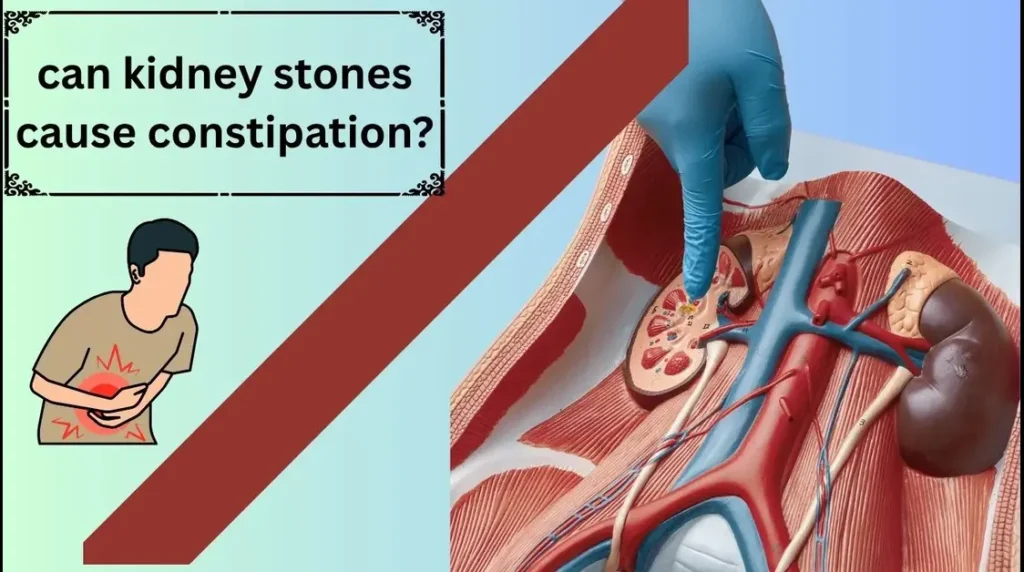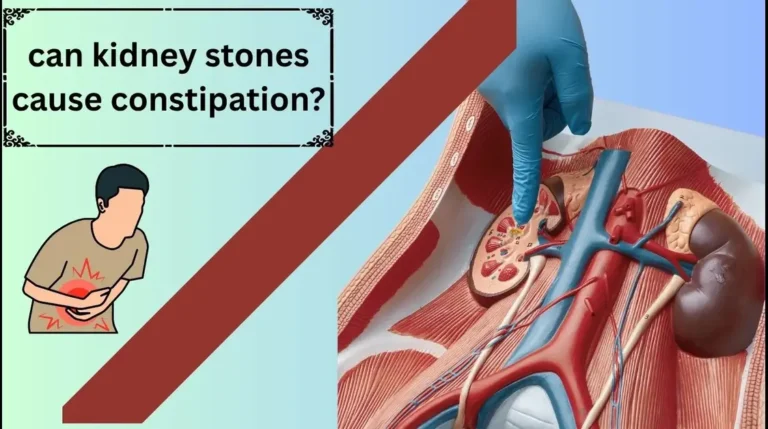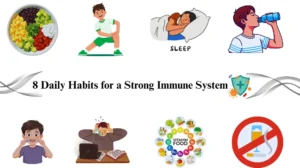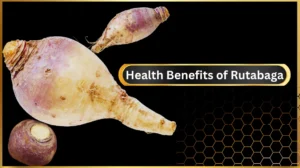Nowadays, many people are affected by kidney problems and constipation. Among the various kidney problems, the most common one is kidney stone disease. Now, many people may have a question in their minds that if there are kidney stones, does it cause problems like constipation?
First of all, it should be said that the problem of constipation can be caused by various reasons; it can be due to kidney stones or it can be due to digestive problems and bad eating habits, so it is very important to know the correct information about this and make the correct diagnosis. Below is a detailed discussion of the relationship between kidney stones and constipation.
Table of Contents
ToggleWhat Are Kidney Stones?
Kidney stones are caused by the accumulation of minerals and salts in the kidneys.. They range from tiny particles to large stones. These formations form when there is more crystal-forming material than liquid in your urine. These stones can form anywhere in the kidneys and can also form in the bladder. When they become large, they can be very painful.
What Is Constipation?
We all have some idea about constipation. Nowadays, it is a very common health problem that many of us have, but it is not a disease. This is just a symptom of a disease. Which can happen for various reasons..
Constipation is a condition where the stool is much less than normal, and it is very dry and hard. It becomes very difficult to pass stool. If there are fewer than three to four times a week, we can classify it as constipation.
Comparing Symptoms: Kidney Stones vs. Constipation
| Kidney Stone Symptoms | Constipation Symptoms |
| Frequent urge to urinate | Abdominal discomfort |
| Sharp pain in the side and lower back | Infrequent bowel movements |
| Pain and burning while urinating | Dry and hard stools are difficult to pass |
| Blood in urine | Bloating and Fatigue |
| Fever and nausea | Feeling full |
How Kidney Stones Affect Bowel Function
Small kidney stones usually do not cause any problems with bowel movements, but when the stone is very large in size, it puts pressure on the surrounding organs, including the urethra, which can cause abdominal pain, constipation, and difficulty defecating.
Can Kidney Stones Directly Cause Constipation?
Kidney stones usually do not directly cause constipation. They are associated with urinary tract symptoms. The organs in our abdomen are very close together, so when one organ is affected, it can affect other organs located nearby.
The kidneys and intestines function differently, but when kidney stones form, they can cause inflammation and pressure that can affect the structure of the intestines.
When to Seek Medical Attention for Kidney Stones and Constipation?
It is very important to treat kidney stones and constipation at the earliest stage.
If you have problems urinating, such as blood in your urine, frequent urination, leaking urine, and severe pain in your lower back or side, as well as fatigue, loss of appetite, and fever, these symptoms may indicate kidney problems, so it is necessary to consult a doctor without delay.
On the other hand, constipation can be caused by any reason. It can be due to digestive problems and poor eating habits. However, if you have constipation, it is very important to consult a doctor and get a proper diagnosis.
Prevention Tips for Kidney Stones and Constipation
There are a few things you should definitely follow to prevent kidney stones and constipation.
1) Avoid foods high in oxalate
If you have kidney stones or have had them in the past, then you should definitely avoid foods high in oxalate, such as spinach, nuts, beets, dates, processed meat, legumes, etc.
2) Avoid taking excessive painkillers
For various reasons, we take a lot of painkillers, which relieve pain, but excessive consumption can damage the kidneys, so we should avoid taking them in excess. Any painkiller should be taken after consulting a doctor.
3) Drink more water and fluids
To prevent kidney stones, you should drink more water and stay hydrated. Drinking the right amount of water or fluids does not allow minerals to form in the urine, which can prevent kidney stones from forming. You should drink at least 3 to 4 liters of water every day.
In case of constipation, you should also drink more water, as it helps in regular bowel movements and softens the stool.
4) Eat healthy food
In both kidney stones and constipation, you should eat healthy food. Avoid excess oily, fast foods, spicy food, and processed food.
Also, reduce excess salt intake.
5) Exercise regularly
Exercise and physical activity are very important to keep our bodies healthy. It can be very effective in both constipation and kidney stones. Exercising daily improves digestion. Also, regular exercise is very beneficial for our physical health as well as our mental health.
Conclusion
Kidney stones and constipation are two types of problems that hinder our healthy lifestyle. It is very important to treat them. Also, you need to eat healthy food, drink more water, and exercise daily. It is possible to deal with these diseases by improving your quality of life, and you should definitely consult a doctor.
Frequently Ask Question
1) Can a kidney stone cause intestinal obstruction?
Ans:- No, kidney stones do not usually cause intestinal obstruction. Kidney stones mainly cause urinary problems, but in very rare cases, intestinal obstruction can occur, which is not normal. In this case, you should consult an experienced doctor. In this case, you should consult an experienced doctor.
2.) How do I know if my constipation is due to a kidney stone?
Ans:- If you notice that it starts after you have been diagnosed with kidney stones or after taking any kidney stone medication, then you need to understand that constipation is due to kidney stones. However, you need to remember that constipation can be caused by various reasons, so it is necessary to consult a doctor to diagnose the correct disease.







